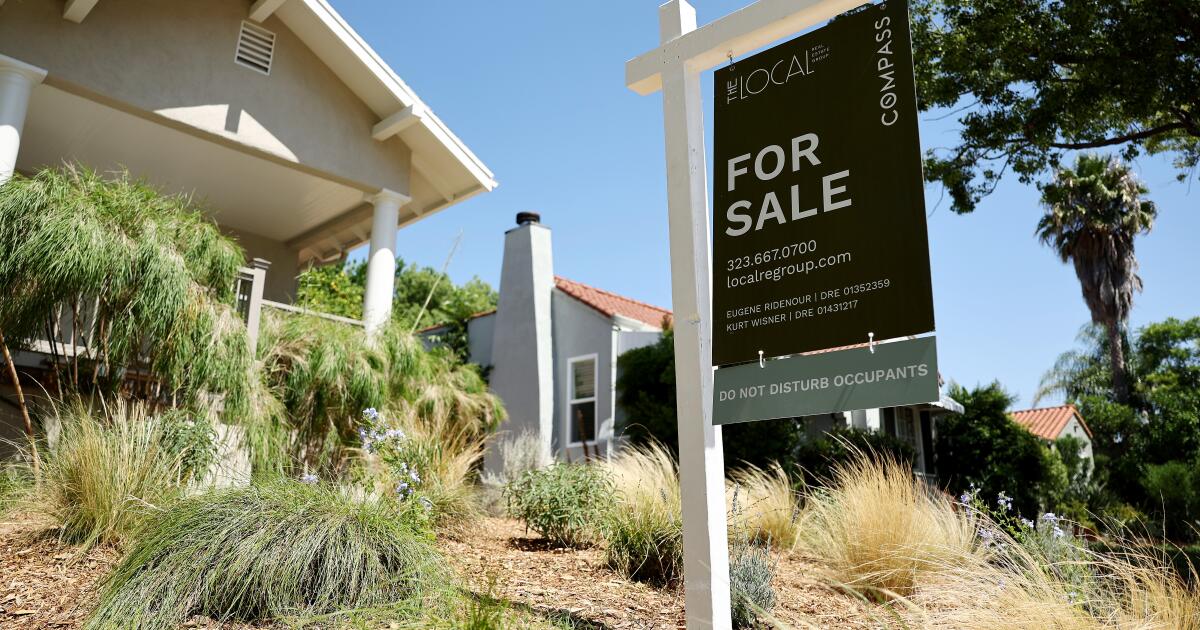
I was leaving a friend’s housewarming party on a street of nice single-family homes in Los Angeles a few years back when my curiosity got the best of me. I pulled up Zillow on my phone, entered her address and blinked at the property’s purchase price. I suppose I could have just asked her. In Los Angeles, talking about the cost of real estate is common, and I’ve often heard people comparing their refinance interest rates or saying how much they had to pay over the asking price. But by pursuing the information privately, I could digest my feelings about not being in a position to afford a house of equal value because I came from a different family of origin, because I was unmarried, because our writing careers had unfolded differently.
This emotional aspect of homeownership isn’t discussed in articles that make the choice between buying and renting seem as low impact as choosing whether to eat carbs. Of course, it’s a financial investment and should theoretically be approached without sentiment. But it’s also one of the most loaded tenets of the American dream. When a belief or ideal has been drilled into your subconscious, detaching your values and self-identity from the fantasy can be difficult. This is true, even for people like me who were raised outside the mainstream.
When I was a child, my mother and some friends bought 100 acres of land in Maine, creating an intentional community as part of the Back to the Land movement in the 1970s. Four families, including my own, designed and built properties — with our own hands — as well as the organic gardens, compost bins and wood piles that supported our chosen way of life. Everything was purposeful, such as our home being heated by solar energy and wood we mostly cut from our land. We ate our vegetarian, home-grown meals together under our skylights and at regular neighborhood potlucks. At the time, I felt like an outsider at school. Most families in our village had lobstered for generations and did not understand our preferences. But even then, I sensed I was being raised thoughtfully and well.
All of this introduced me to the idea that owning a home was a conscious commitment to creating a small oasis of mindful, environmentally friendly, community-oriented living, as well as an act of stewardship — my parents own 30 acres of woodland that our family will never develop. And while I rebelled at 15 by moving to Massachusetts to start college early, I internalized these values and have been looking for my own version ever since.
Perhaps it was this unusual upbringing that made me always love peeping in other people’s windows, to see how they lived by comparison. On runs through my neighborhood, I have spied scenes of a boy practicing piano or my neighbors watching “Jeopardy” by the light of their Christmas tree. As a child, I drew elaborate underground squirrel-houses with bunk beds and roller rinks. As an author, when I’m creating a new character I go to their hometown’s Zillow page and seek their living situation, scouring photos for my scene-setting. In my forthcoming novel, the main character, Mari, is a ghostwriter who sleuths intel about her client by looking up her home on Zillow. But I don’t need an excuse to peruse the site. Even though I’m not in the market to buy, I love to get lost in the fantasy of other houses, other lives.
This tendency to look up residences in my neighborhood, for sale or not, morphed into looking up homes to which I am invited. Like many things in life, you only have to do it a few times for it to become a habit, whether it feels good or not. When I looked up a former mentor’s new home, the elegant, high-ceilinged rooms, alluring yard and swimming pool gave me all the feelings we can have about an old friend whose career has skyrocketed when ours has not yet hit the same heights.
Perhaps I should stop. Or perhaps it’s a healthy way of getting a handle on how I compare myself to others and assess where I am in my own life, and what my level of success or acquisition says about me. Perhaps, just as it fuels my writing, it helps me envision the many possible future stories of my own life.
Finally, in 2017, I compromised on my desire for a home and bought an investment property in Joshua Tree. Many of my friends also own places there, so in that way I was becoming part of a community as I had long sought. But owning a house that I would live in had become such a potent signifier, and even though I’m well aware that being able to buy property anywhere is a luxury many others will never have, this still felt like a concession. I knew vacationers would frequent it more than I would.
The day I decided to buy the home, I peered up at the sky through one of the perfectly placed windows and nearly wept because the space was that beautiful. The Los Angeles real estate market — and the rental market — had beaten me down, and I had given up thinking I had a right to anything as nice as this property. Except I did, and I do. We all have this right. And now, sometimes, I pull up the Zillow listing for my house and smile at this little corner of the world where I fulfilled a dream and took the first step into my own version of stewardship.
Sarah Tomlinson is a writer in Los Angeles. Her first novel, “The Last Days of the Midnight Ramblers,” is to be published Feb. 13.
